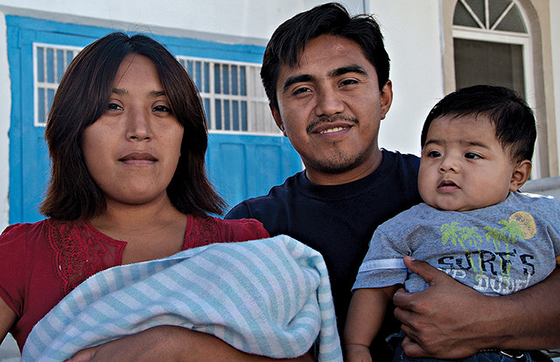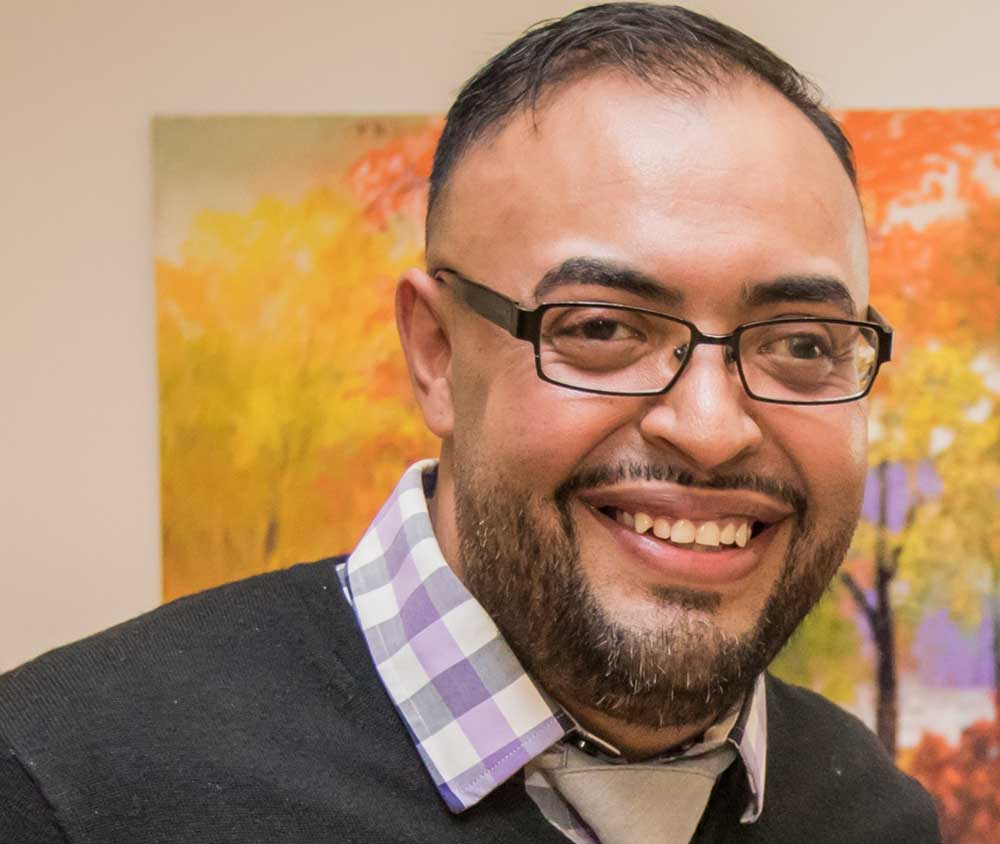Serving with heart: How Gerardo Ravelo and UnidosUS Affiliate Spanish Coalition for Housing help people reach their homeownership dreams

Financial coaching gives Latino families the information and tools needed to improve their credit, increase savings, and build wealth. For UnidosUS and our Affiliates, building individual and familial financial capability is not only important because communities across the country continue to recover from the devastating effects of the financial crisis, but also because of the numerous ways the Latino community contributes to the ongoing recovery of our national economy.
Hispanics are expected to make up 22% of the national population and 40% of new households by 2030. It is critical that individuals and families have the tools and resources to prosper.
Last year, UnidosUS spoke with Katherine Rios, Associate Director, Financial Capabilities, Housing and Financial Empowerment, to learn about how UnidosUS Affiliates are combining financial capability coaching with current programs like housing counseling, workforce development, promoting healthy eating and food choices, parent engagement, and immigration legal services. Since 2017, fourteen UnidosUS affiliates have connected with over 16,000 families, through outreach and education activities, and almost 3,000 families have had short-term financial coaching.
Keep up with the latest from UnidosUS
Sign up for the weekly UnidosUS Action Network newsletter delivered every Thursday.
As part of our National Homeownership Month blog series, we are featuring UnidosUS Affiliate Spanish Coalition for Housing, a member of the UnidosUS Wealth and Housing Alliance, that works with Chicago’s Latino community. The organization helps individuals and families understand how to buy a home, provides the tools and resources essential to make important financial decisions, and supports families who are trying to save their home from foreclosure.
We spoke with Gerardo Ravelo, Financial Education Coordinator at the Spanish Coalition for Housing, to talk about his role as a financial coach and counselor. Ravelo has over 10 years of experience providing housing counseling services and implementing financial capability programs. He has helped hundreds of families become homeowners and achieve other financial goals through high quality financial coaching. Ravelo’s colleagues say he embodies the organization’s slogan: Heart, Hope, Home.

Q: Tell me about your role as a financial coach in counseling people about homeownership.
A: My role as a financial coach influences nearly every aspect of what I do in preparing for and guiding people through the homeownership process and as homeowners. If I am helping a client prevent foreclosure, we usually go over things like spending plans and the client’s budget. In a session with someone who wants to buy a home, we also analyze their credit score and what they can do to improve it. These core topics are discussed during rental counseling too.
“I tell my clients that this process is like changing your diet and exercising—change doesn’t happen overnight.”
In advising clients, you have to find the proper balance between coaching and counseling. I’ve been at this a long time and instinctively know when a situation calls for me to wear my counseling or coaching hat. When someone is in crisis, my role is to help them focus on addressing that specific issue. Once the crisis is resolved, I can start coaching. Each situation needs to be individually assessed to determine if the client will be best served by coaching or if I need to provide some counseling first.
Q. What do you like most about your job?
A. I take great pride and satisfaction in helping people, in bettering our community. For example, being able to help families who are facing foreclosure devise a plan to save and stay in their home is really a privilege for me. I like to help people who are working hard learn how to save money and be prepared to buy a home. Seeing the impact our work has on people’s lives, that is what I enjoy the most.
Q. When clients come to see you, what are the most common questions or problems they talk about?
A. Clients most frequently ask about negative information on their credit report. Most people are concerned about their credit and want to learn how they can rebuild it. Recently, I’ve been helping many college graduates who have substantial student loan debt but want to prepare to buy a home. It’s unfortunate but I do see many clients with delinquent student loans. But, the good news is that we can help these clients re-establish their credit. This is not a new issue, but today we work with many more clients carrying student loan debt than we did in the past.

Q. How do you work with people in a way that keeps them motivated?
A. I think that once people start seeing results, they feel motivated. As a coach or a counselor, I set realistic expectations with my clients. If they start to see improvement over time, that keeps them moving forward and doing the necessary work. Often, I tell my clients that this process is like changing your diet and exercising—change doesn’t happen overnight. But if you are dedicated, you will be able to achieve your goal.When discussing credit reports with younger clients, I often use the analogy of school report cards. With a report card, the grades you received were based on your performance during a period of time, including how well you did on tests and whether you completed your homework. It’s not that different from a credit report. I believe in credit improvement, not credit repair. Even if you start out with a low score or negative indicators on your credit report, you can raise the score. By committing to making payments on time and working on a plan to reduce your debt you can steadily improve your credit standing.
Q. If you had a magic wand to change something about the financial system that would most benefit your clients, what would it be?
A. Many of the people I work with in our community have an Individual Taxpayer Identification Number (ITIN). I would like to see more financial products developed and available to ITIN consumers. In many cases, there are few options for the or the options available are not cost effective. When buying a home, people with an ITIN are required to provide a larger down payment or often pay a higher interest rate on their loan. When trying to establish credit, many ITIN holders often apply for personal loans and credit cards but the terms on these products are like payday loans, making them more harmful than helpful to a client’s credit.Ideally, I’d like to ensure that my clients with an ITIN have equal access to the same financial products and services that clients with a Social Security card have. For example, an ITIN client should be able to be approved for a secured credit card with a fair interest rate and they should also be eligible to receive down payment assistance when buying a home. The clients I see with an ITIN are just as capable of making their credit payments, but banks are not willing to take the risk.
We tip our hat to Gerardo and the Spanish Coalition for Housing for all the work they do to move our communities forward. To learn more visit their website.
How we are supporting Latinos who want to buy a home in the future



